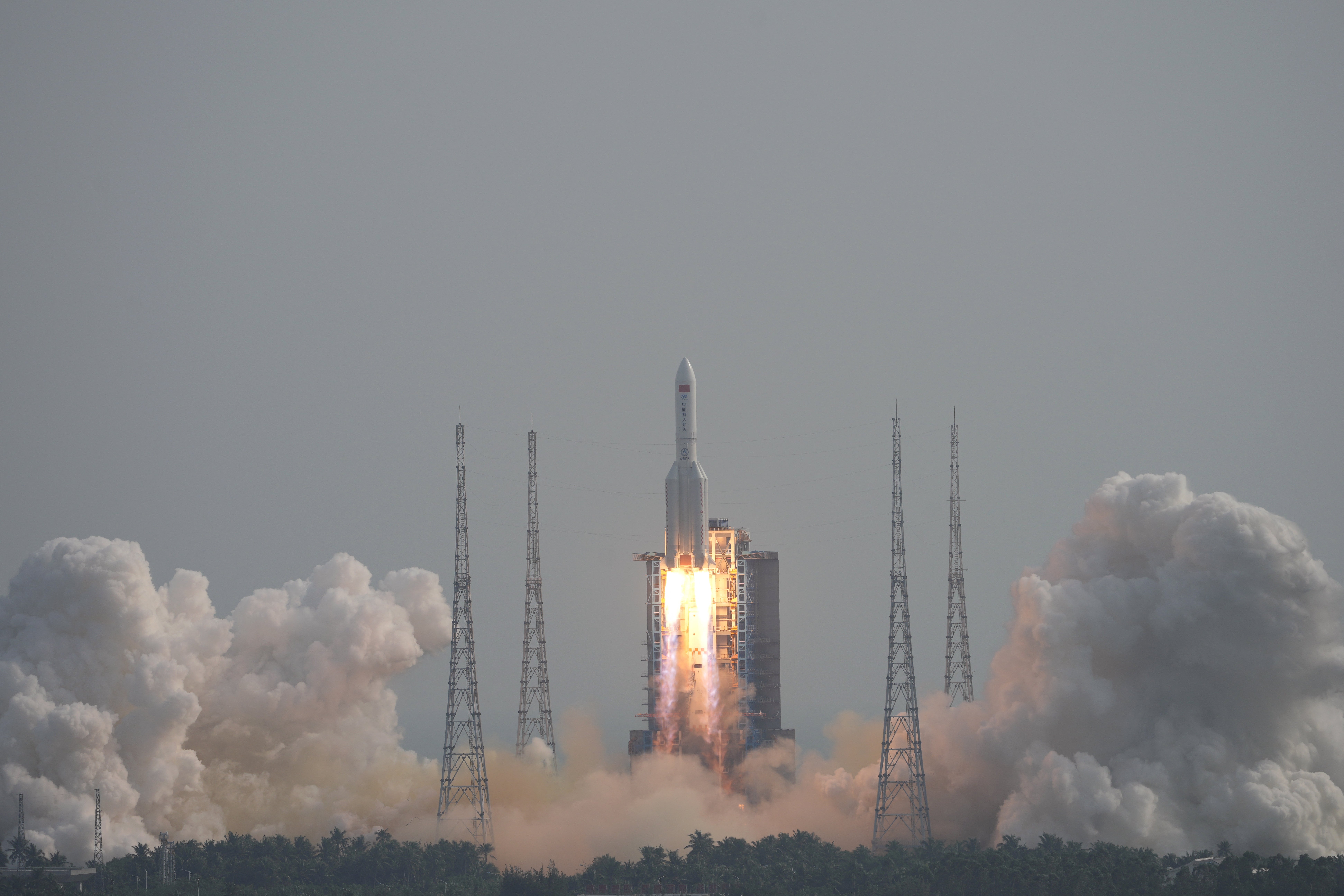Spain closes airspace as out-of-control Chinese rocket debris flies over
300 flights delayed as rocket parts pass through atmosphere and crash into Pacific Ocean

Hundreds of flights were disrupted on Friday as Spain closed the airspace over several cities while remnants of a Chinese rocket passed overhead before crashing into the sea off Mexico.
National airport operator Aena said 300 flights were delayed due to air traffic restrictions that were imposed for half an hour at 9.38am.
A large part of the Long March 5B (CZ-5B) rocket, which took the third module of China’s Tiangong space station into space four days ago, broke up as it re-entered the Earth’s atmosphere.
Its projected possible path took it over Spain, forcing authorities to move aircraft to reduce the risk of a collision.
Spain’s air navigation authority, Enaire, imposed restrictions on the airspace over northeastern parts of the country, including Catalonia and the Balearic islands.
In a statement, it said: “Given the uncontrolled entry of remains from the Chinese space object CZ-5B in a descending orbit crossing our national territory, Enaire, in accordance with the recommendations of the European Union Aviation Safety Agency and the inter-ministerial directorates led by the Department of National Security, established an airspace exclusion zone of 100km on either side of the orbit of the space object.”
China Manned Space Agency said remnants from CZ-5B re-entered the atmosphere at 10.08am, with most of them burning up and the rest touching down in the Pacific Ocean at a point 620 miles southwest of Acapulco.
It was the fourth flight of the Long March 5B since its maiden launch in May 2020.
On its first deployment, fragments of the rocket’s boosters landed on the Ivory Coast, damaging several buildings in the west African nation, though no injuries were reported.
Debris from the second flight landed harmlessly in the Indian Ocean, while remnants from the third fell into the Sulu sea in the Philippines.
Zhao Lijian, a spokesperson at the Chinese foreign ministry, speaking during a regular briefing on Friday, said a rocket’s re-entry into the atmosphere was a common international practice, when asked if China had taken measures to reduce the risks.
Zhao said the probability of causing harm to aviation activities and the ground was “extremely low”.
Join our commenting forum
Join thought-provoking conversations, follow other Independent readers and see their replies
Comments
Bookmark popover
Removed from bookmarks